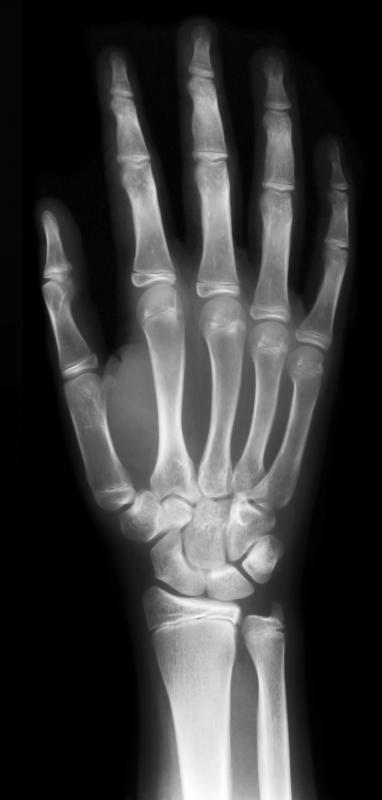At WiseGEEK, we're committed to delivering accurate, trustworthy information. Our expert-authored content is rigorously fact-checked and sourced from credible authorities. Discover how we uphold the highest standards in providing you with reliable knowledge.
What is a Radiologic Technologist?
A radiologic technologist, also known as a radiographer, x-ray technician or radiation therapist, is a professional in the health care field who provides treatment against cancer and tumors. By using high doses of radiation on a patient, the therapist can reduce his or her cancerous or tumorous cells, even to the point of elimination. While other therapies may also be needed with many patients, this radiation can be life-saving.
Radiation can also be used to take pictures of the body. After receiving a doctor's order for testing, radiologic technologists prepare patients for the procedure, which may involve protecting certain body areas against the radiation. The therapists then use specific tests to identify specific injuries and illnesses of a patient through imaging. These images can help the doctor diagnose and treat the patient.

Depending on one's interest, a radiologic technologist may choose one or several specialties to learn. Each area of specialty has its own tools and types of radiation for a specific use. CT, computed tomography, technicians provide imaging similar to that of an x-ray technician; the difference is that CT imaging involves multidimensional views of the body. Mammography technicians use these x-rays to monitor breast tissue.

Sonographers create photos of patients using high-frequency ultrasound, which are often used in obstetrics because of their safety. Magnetic resonance imaging, or MRI, is a specialty that involves creating a multidimensional map of a patient to study their body tissue. Diagnostic radiographers use cardiovascular imaging and other types of radiography to examine patient bones, foreign objects and cavities. Specialists in fluoroscopy take live motion x-rays of patients.

Radiotherapy, or radiation therapy, is the actual use of radiation to shrink or kill tumors and cancerous cells completely. Finally, nuclear medicine uses tracing through radiology to both treat certain cancers as well as follow how the body functions.
A wide variety of locations are available for a radiologic technologist to work at, including hospitals and other medical centers, nursing homes, clinics, and laboratories. Though requirements to become a radiologic technologist vary worldwide, most places require a minimum of an associate's degree and certification, in addition to periodic re-certification to assure that the therapist retains and updates his or her skills.

The typical radiologic technologist works a 40-hour work week, though some may work either part-time or on-call. Typically, the most lucrative specialty of radiologic technology is medical dosimetry, followed by radiation therapy. Disciplines with the lowest salaries, in general, are radiography and mammography.
AS FEATURED ON:
AS FEATURED ON:














Discuss this Article
Post your comments